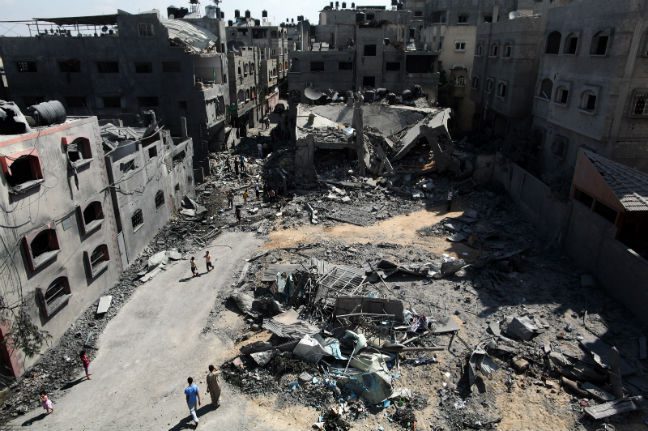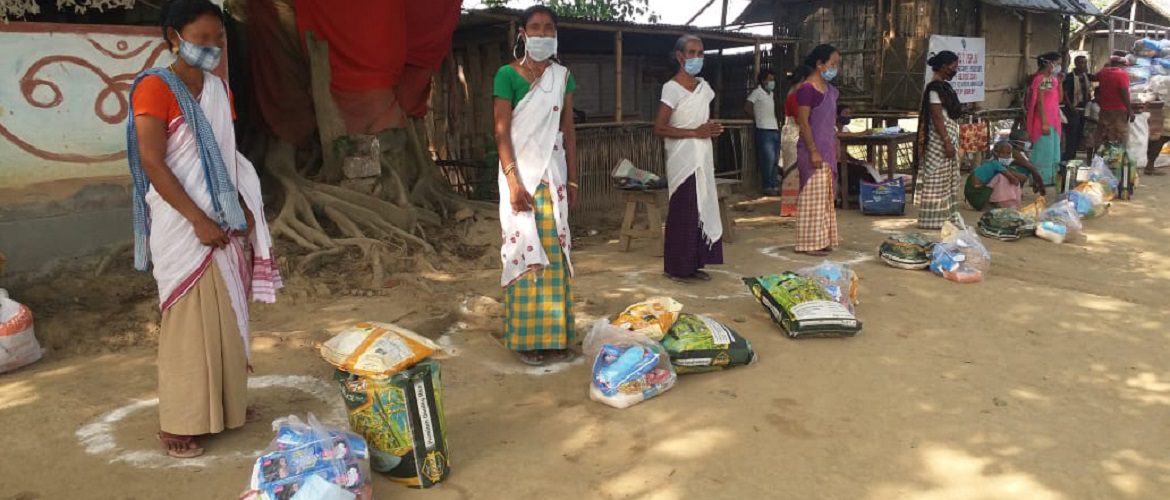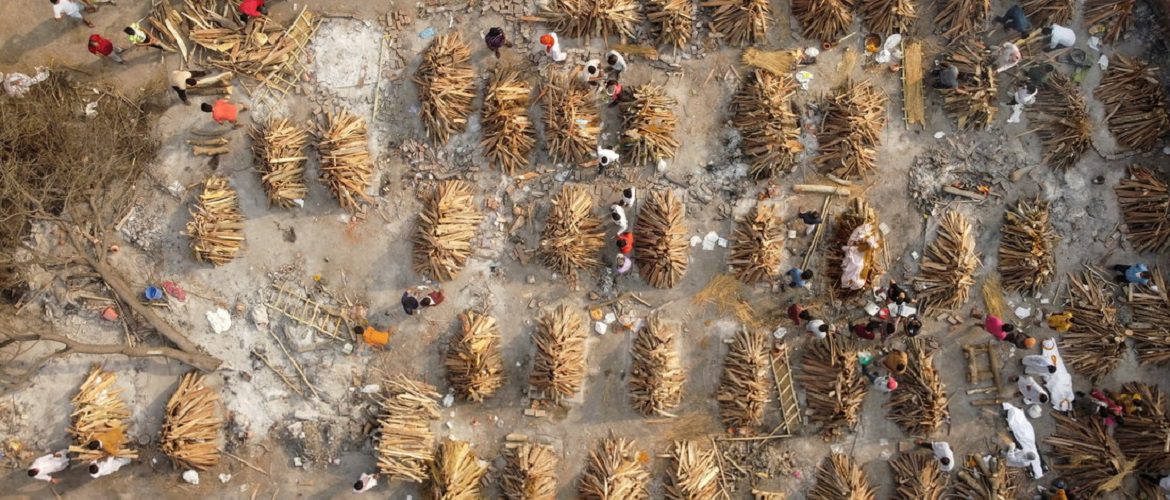Richard Stanforth is Oxfam GB’s Regional Policy Adviser in the Middle East. Here, he shares his personal experience of what life has been like in Gaza under the blockade.
I first visited Gaza in spring 2006 when I had just become a policy officer for Oxfam covering Israel and the Occupied Palestinian Territory. I arrived at Erez, the only passenger crossing between Israel and Gaza. On the Israeli side, there was a wooden hut. You came in through one door and out through the other, towards the long walkway to a Palestinian checkpoint.
Kamal, Oxfam’s driver, was waiting for me there. He took me on a tour of Gaza, and gave me a diary to thank me for coming, which I have kept all these years. At that point, I didn’t realise he was one of the kindest people in the world.
That was 2006, a year before the full blockade began. Israel had just signed an Agreement on Movement and Access with the Palestinian Authority, sponsored by the US Secretary of State, Condoleezza Rice, in November 2005. Among other things, the agreement allowed several crossings to open at once, so that security incidents at one crossing wouldn’t stop the flow of goods altogether.
That doesn’t mean 2006 wasn’t grim. Israel’s occupation was already almost 40 years old. By any decent standard, people in Gaza lived no ordinary life.
Unlike today.
That doesn’t mean 2006 wasn’t grim. Israel’s occupation was already almost 40 years old. By any decent standard, people in Gaza lived no ordinary life. But at that point Israel had not stopped goods from entering. Israelis and Palestinians traded in both directions. When I got back to the UK I found strawberries marked ‘Gaza’ in my local Tesco in Oxford. You won’t find them there today.
The beginning of the blockade
I flew back to Israel a few weeks after its government began the full blockade of Gaza in June 2007. From Jerusalem, we drove south towards Gaza. At the Sufa crossing, I passed lanes and lanes of Israeli trucks all queuing to get in. There was a friendly Israeli soldier with a clipboard, monitoring their movements.
Then we went to the Karni crossing, a massive container terminal for imports and exports with sophisticated machines that could x-ray a whole shipping container in minutes. There were lanes and lanes for trucks to drive in and out of Gaza. Karni could process 750 containers a day, but there was hardly a truck to be seen, and everything looked closed down.
When I got back to Jerusalem, I went to see some diplomats — who thought I was exaggerating the seriousness of the situation — and told me that ‘the blockade would be over in a few weeks.’ In fact, the opposite has happened.
No access to resources
Since that time, Palestinian armed groups, including Hamas, have fired rockets causing fear and panic in parts of Israel. Israel has restricted access to fuel and electricity as well as food. The targeting of Israeli civilians is despicable, but the entire population of Gaza has been increasingly paying for the actions of just a few.
The targeting of Israeli civilians is despicable, but the entire population of Gaza has been increasingly paying for the actions of just a few.
When I went back, Gaza smelt like a chip shop, as people filled their vehicles with recycled cooking oil, rather than petrol.
The blockade did not end. The collective punishment went on, and after more than a year, the violence escalated. There were more Palestinian rockets, and Israel launched ‘Operation Cast Lead’ — during which Kamal risked his life taking families back and forth to collect Oxfam’s small water tanks to replace those that had been damaged by Israeli attacks.
After that crisis was over, in early 2009, Oxfam had to use rubble from the bombings to rebuild roads for farmers as Israel wouldn’t allow construction materials to be brought in. I could go on, but I won’t.
At the end of the next crisis, in November 2012, one local aid worker, Jabr Qudeih, told Oxfam: ‘I hope that the future will be different’.
But it hasn’t been. The blockade hasn’t ended. And now four out of five people in Gaza rely on humanitarian aid.
End the collective punishment
In 2013, Kamal — now a good friend — finally got a visa from the British Government to come to London for training. I took him out one Saturday to see London’s sights. He had never been outside Gaza before. On Horseguards Parade, he literally jumped for joy. Compared to his neighbours who were never allowed to leave Gaza, he knew how lucky he was.
A few months later, I saw Kamal again at his home in Gaza, with the washing hanging out on the line. Today, his house is destroyed, and he has been forced to shelter with his family in Oxfam’s office.
Perhaps… by the time I see Gaza again, steps will have been taken to finally end the collective punishment the blockade represents.
I suppose I’ll go back to Gaza quite soon, to watch the world rebuild it once more, and to watch Oxfam’s amazing — and I mean that — staff trying to help people live as decent a life as these unbearable circumstances allow.
Perhaps this time will be different and that by the time I see Gaza again, steps will have been taken to finally end the collective punishment the blockade represents. For nothing but suffering has come from it.
I suppose there will be the usual exhale when this summer’s terrible crisis is over. The usual words from world leaders as Gaza slides out of the headlines again. And the blockade, and eternal cycle of violence, goes on.
Or perhaps not. Perhaps that’s not right. Perhaps this time will be different and that by the time I see Gaza again, steps will have been taken to finally end the collective punishment the blockade represents. For nothing but suffering has come from it.
The conflict between Palestinians and Israelis will not be solved by blockade, nor by any military means. If a lasting solution were easy, we’d have seen it decades ago. But it must at least begin with a lasting ceasefire, an end to the blockade of Gaza, and a negotiated peace based on international law.
And if I feel one thing more strongly than anything, after all my visits to Gaza, it’s that it must begin now.
Oxfam’s International Crisis Fund enables us to rapidly address emergencies as they occur around the world. Donate now and help those most in need when an emergency, like the crisis in Gaza, occurs around the globe.
Our International Crisis Fund ensures that we’re able to respond quickly when a natural or man-made emergency occurs around the globe.





